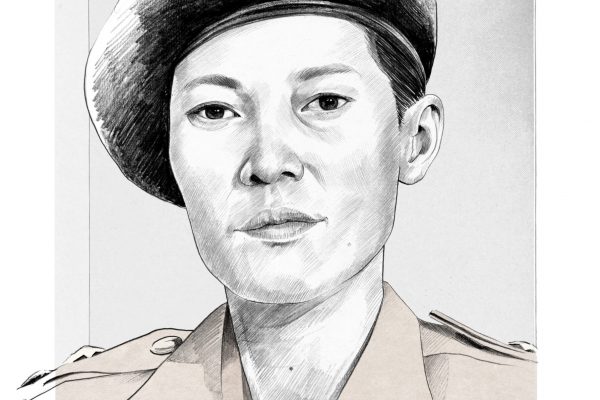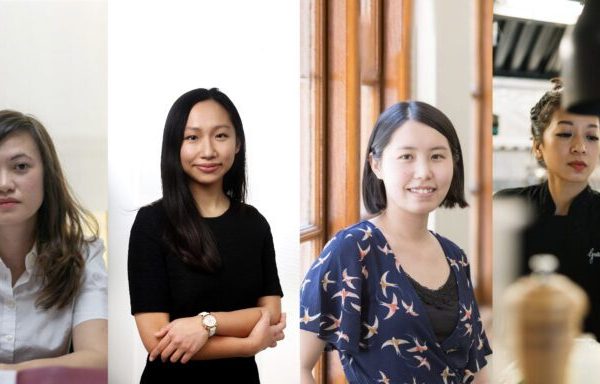Life Studies: Navigating reproductive ethical dilemmas
Reproductive rights catapulted onto the world stage in 1968 during the first United Nations’ International Conference on Human Rights, where member states and delegates assured citizens of the “basic human right to determine freely and responsibly the number and spacing of their children.” In theory, this meant that women would have improved access to education, contraception and legal abortion services, as well as greater self-determination in family planning.
Half a century later, reproductive rights have once again entered international discourse. In the US, for example, a number of states have attempted near-total bans on abortion as ultra-conservative and religious factions push the Supreme Court to overturn the landmark 1973 abortion case Roe v Wade. In China, He Jiankui, an associate professor from Southern University of Science and Technology in Shenzhen, stirred controversy when he announced in 2018 that he had created the world’s first genetically engineered babies immune to HIV.
In the wake of these developments, we have invited four experts to explore several ethical questions, from the legitimacy of abortions in instances of rape to controversies surrounding human genome-editing.
Women First
Michael Tang, founder of Tang’s Psychiatric Clinic and Mind Center in Taiwan (Photo credit: Krollfilm)
There were over 97,000 reports of sexual assault recorded in Taiwan between 2008 and 2018 – and 90 per cent of the victims were women, according to the Ministry of Health and Welfare. Michael Tang, founder of Tang’s Psychiatric Clinic and Mind Center in Taiwan, says that rape victims who become pregnant face an impossible choice:
“I’ve handled a great number of cases related to sexual violence throughout my 20-year career in trauma therapy; many victims choose to have an abortion after they find out that the rapist is the father. Friends and family will often encourage the victim to terminate the pregnancy and start a new life, free from any connections to their attacker.
It’s rare for victims of rape to have the baby, but it does happen. For instance, one woman decided to keep her child and marry the man who had raped her because she knew him. Initially, she was angry but after she made the decision to stay with him, her mindset changed and she began to believe that the assault had, in fact, been consensual.
Other factors affecting a victim’s decision to go through with a pregnancy are her age and ability to take care of a child. Some people may think that the child is innocent and, as the victim’s offspring, should be cared for.
But the victim may have a very different thought process. In some cases, a woman is incapable of taking care of a child due to depression, which can affect the child. I think victims should take care of themselves first before going ahead with a pregnancy.
In the US, states like Alabama have passed near-total bans on abortion [which was later blocked by a federal judge in October 2019] with no exception in instances of rape and incest. Policies like these can only work if there is adequate professional help and the right resources to provide continued support for both mother and child.
From a medical perspective, if the psychological condition of the mother does not allow her to take good care of her child, and if society is unable to support the baby, then abortion may be the best option to help minimise any further suffering for the victim.”
Striking a Balance
Arita Chan, a senior lecturer in the Department of Psychology at the Education University of Hong Kong
In 2016, the Hong Kong Population By-census recorded 56,545 single mothers in the city – more than three times the number of single fathers. Arita Chan, a senior lecturer in the Department of Psychology at the Education University of Hong Kong who counsels children with emotional and behavioural problems, explains why she feels it’s important for fathers to stay involved in children’s lives:
“In cases of unplanned pregnancy, the father may feel unprepared about having a child even though the mother prefers to keep the baby. When a father abandons his child, it’s often because he is frightened of parenthood or has personal issues stemming from a troubled family history. In this case, counselling or other professional support can help the father overcome his issues. The father’s family could also try to provide support by helping him prepare and sharing the responsibilities.
After many years, the father may come to regret abandoning his child and feel a great deal of guilt. By that stage, it may be too late. He would probably need to make a tremendous effort to overcome his guilt and rebuild a relationship with his child.
We can’t force a father to support his children, but he should try his best to take responsibility and participate in the care of the child, because his role is central to the nuclear family. Any unwillingness to bear that responsibility can lead to a child feeling rejected, which in turn affects a child’s self-esteem. As a result, the child may think it’s his or her fault and believe they do not deserve to be loved by others.
In general, fathers and mothers have different ways of interacting with their children in a family system. Traditionally, mothers tend to be more nurturing – providing emotional support, love and care – while a father plays the role of mentor when it comes to his child’s decision making and career prospects. This is especially true in Asia. Ultimately, the presence of both the mother and the father can provide a balanced approach in terms of the child’s moral compass and social skills.
As a counsellor, I have helped many children whose parents have separated. Some of these children, especially boys, feel a strong sense of responsibility when it comes to taking care of their family once their father has left. But this kind of pressure can adversely affect their development and how they interact with others in society.”
Genome Hacking
 William Chao, an associate professor at the University of Macau’s Faculty of Health Sciences
William Chao, an associate professor at the University of Macau’s Faculty of Health Sciences
In 2019, Chinese researcher He Jiankui was sentenced to three years in prison after he created the first genetically modified human babies. Using a technique known as CRISPR-Cas9, He claimed to have rendered the babies immune to HIV by introducing mutations in the embryos’ C-C chemokine receptor 5 (CCR5) genes. William Chao, an associate professor at the University of Macau’s Faculty of Health Sciences, shares his concerns about genome-editing technology.
“Like many scientists, I have considerable concerns about human genome editing, which is a relatively new technology based on CRISPR-Cas9. Although well-studied, CRISPR-Cas9 is still beset with issues, such as the potential to introduce unintended mutations in the human genome. Without knowing where these mutations may occur, the edited subject could have unforeseeable health risks.
The majority of the scientific community remains unconvinced about the implantation of genetically modified human embryos into mothers. Yet, the community hasn’t reached a consensus about performing gene editing for the purpose of improving a person’s [cognitive or physical] ability if the technology becomes risk-free in the future.
From an ethical perspective, He’s work is controversial because it was carried out without peer review or obtaining approval from the relevant government bodies. With this procedure, He has changed the human gene pool indefinitely – the edited genome can be passed on through reproduction. We may not even realise the true impact for several generations. He shouldn’t be allowed to artificially change the gene pool without consulting the rest of the human species.
Furthermore, the twin sisters whom He created will see their freedom and privacy violated, as they will be subject to monitoring by scientists and media for the rest of their lives.
This is one example of how technology can progress much faster than the laws and ethics of our society. It has sparked an urgent debate in regard to genome-editing regulations. For now, it’s important to regulate the technology through legal means and restrict it to treating diseases, rather than augmenting human abilities.
My biggest concern is that genome editing will become an exclusive service for the wealthy, who may use the technology to augment their children’s cognitive and physical abilities. In the future, these groups of modified humans may prefer to marry each other. After several generations, their cumulative superior traits may allow them to form an absolute ruling class whose abilities could not be matched by unmodified humans.
As a species, we must encourage discussions about the direction in which our civilisation should head. Under what circumstances are we allowed to modify the human genome? Do we want genetically augmented babies? Are we happy to see the human race evolve into a new species through artificial design?”
Cause and Effect
Wai Chi Lin, a Tibetan Buddhist monk
Abortion is illegal in Macao except in cases of rape, incest, or fetal impairment. Wai Chi Lin, a Tibetan Buddhist monk who moved to Macao 10 years ago, explains why he believes abortion in the case of disabilities is unethical:
“Buddhists believe that Hetu-Phala (meaning, cause and effect) is the driving force behind everything in life. According to ancient texts known as Sutras, Buddhists believe that babies are born with limb deformities because they have harmed someone else’s body in a previous life and, as a result, will suffer the consequences. However, this does not mean that these babies do not deserve a second chance. Buddhism shows great compassion and treats all beings equally.
Therefore, even if a fetus is found to have a disability, the parents should not give up on their child. This is a matter of morality. Moreover, miracles do happen. I know a woman from Macao who had been advised to terminate her pregnancy because they detected limb deformities and the doctor predicted that the baby might not be able to walk. But the mother insisted on keeping the child. Her son is now six years old and perfectly normal. If the parents had listened to their doctor, they would have killed their own child.
A baby is not a product, it’s a life. Buddhists believe that once a fetus is conceived, the spiritual mind will fill it with life. Babies have a right to live – even though they cannot speak to us, we cannot make decisions on their behalf, not to mention end their lives without their consent.
It’s easy for us to think that, if we let a deformed baby live, then that baby will endure many hardships in life. But it’s natural for a person, even a baby, to fight for survival. The will to live is a force within us all. When it comes to humanity, if you understand the concept of Hetu-Phala then you will be able to make sense of many things.”

